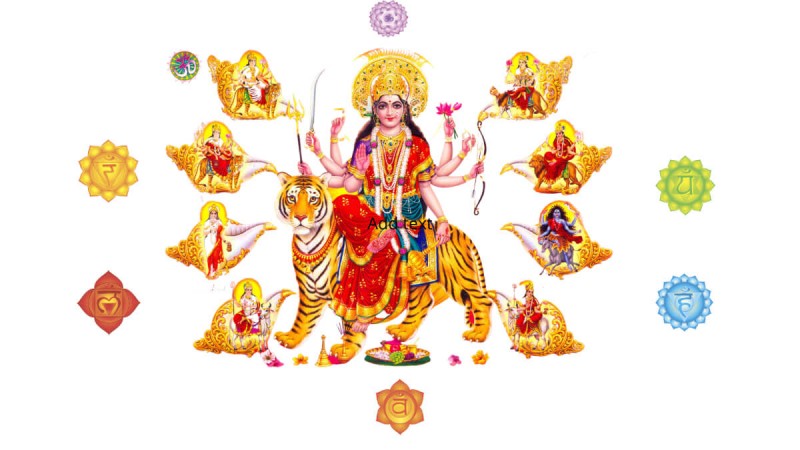
Hinduism, one of the world's oldest religions, celebrates a plethora of festivals throughout the year. These festivals are deeply rooted in religious beliefs, customs, and traditions. Each festival is dedicated to different gods and goddesses and holds immense cultural significance. In this article, we will explore some of the major Hindu festivals, their stories, and the deities they honor.
1. Diwali - The Festival of Lights
Diwali, also known as Deepavali, is one of the most widely celebrated Hindu festivals. It signifies the triumph of light over darkness and good over evil. The festival usually falls in October or November and spans over five days. Hindus light oil lamps, called diyas, and burst fireworks to symbolize the victory of Lord Rama over the demon king Ravana.
2. Holi - The Festival of Colors
Holi is a joyous and vibrant festival celebrated in the spring season. It commemorates the divine love between Lord Krishna and Radha. The festival is known for its exuberant play with colors, water balloons, and water guns. People come together to smear each other with brightly colored powders and dance to traditional folk music.
3. Navratri - The Nine-Night Festival
Navratri is a nine-night festival dedicated to the worship of the divine feminine energy. It is celebrated in the honor of Goddess Durga and her various manifestations. Each night, devotees worship different forms of the goddess and engage in traditional dances, such as Garba and Dandiya.
4. Ganesh Chaturthi - The Birth of Lord Ganesha
Ganesh Chaturthi celebrates the birth of Lord Ganesha, the remover of obstacles. The festival begins with the installation of intricately crafted idols of Lord Ganesha in homes and public places. Devotees offer prayers and perform aarti while chanting hymns in honor of the elephant-headed deity.
5. Krishna Janmashtami - The Birth of Lord Krishna
Krishna Janmashtami marks the birth anniversary of Lord Krishna, an incarnation of Lord Vishnu. Temples are beautifully adorned, and devotees immerse themselves in singing bhajans and chanting Krishna's name. The celebrations often include enacting scenes from Krishna's life, especially his playful antics as a child.
6. Durga Puja - Worshiping the Divine Mother:
Durga Puja is a grand festival celebrated with immense fervor in West Bengal and other parts of India. It honors Goddess Durga's victory over the demon Mahishasura. Lavish pandals (temporary structures) are set up, showcasing intricate idols of the goddess and her family. The festival culminates with Vijayadashami, where the idols are immersed in rivers or water bodies.
Makar Sankranti marks the transition of the sun into the zodiac sign of Capricorn. It is a harvest festival celebrated with different names in various regions of India. People fly kites, exchange sweets made from sesame and jaggery, and take ritual dips in sacred rivers to cleanse their sins.
8. Raksha Bandhan - Bond of Sibling Love
Raksha Bandhan celebrates the unique bond between brothers and sisters. On this day, sisters tie a sacred thread called "Rakhi" around their brothers' wrists, and in return, brothers pledge to protect their sisters. The festival symbolizes love, protection, and the importance of sibling relationships.
9. Mahashivratri - Worshiping Lord Shiva
Mahashivratri is a significant festival dedicated to Lord Shiva, the cosmic destroyer. Devotees observe fasts, stay awake all night, and offer prayers to seek blessings from Lord Shiva. It is believed that sincere worship on this day leads to spiritual upliftment and liberation from the cycle of birth and death.
10. Onam - The Harvest Festival of Kerala
Onam is the state festival of Kerala, celebrated to honor King Mahabali. The festival spans over ten days and includes various cultural events, traditional dances like Thiruvathira, and a grand feast called Onam Sadya.
11. Pongal - Harvesting Prosperity
Pongal is a harvest festival celebrated mainly in the southern states of India. It is a four-day festival during which people express gratitude to the Sun God for a bountiful harvest. The highlight of the celebrations is the preparation of sweet rice pudding known as "Pongal."
12. Eid al-Fitr - Celebrating the End of Ramadan
Though predominantly celebrated by Muslims, Eid al-Fitr holds cultural significance among Hindus as well. It marks the end of Ramadan, the holy month of fasting. People exchange greetings and sweets, and charity is an essential aspect of the celebrations.
13. Karva Chauth - A Day of Fasting and Love
Karva Chauth is a festival celebrated by married Hindu women for the long life and well-being of their husbands. Women fast from sunrise to moonrise and break their fast after seeing the moon. It is a festival that strengthens the bond of love and trust between married couples.
14. Ram Navami - Celebrating Lord Rama's Birth
Ram Navami commemorates the birth of Lord Rama, the seventh incarnation of Lord Vishnu. Devotees read the Ramayana, perform bhajans, and participate in processions to celebrate the life of Lord Rama.
15. Vishu - The Malayalam New Year
Vishu is celebrated as the Malayalam New Year in the state of Kerala. The festival begins with Vishukkani, where people view auspicious items arranged in front of a mirror early in the morning. It is a time of new beginnings, prosperity, and hope. Hindu festivals are a beautiful tapestry of culture, devotion, and joy. Each festival reflects the rich heritage and diverse traditions of India. Through celebrations and rituals, these festivals not only strengthen the bond between families but also foster a sense of unity and oneness among communities.
Codependency and Setting Boundaries: Promoting Individual Growth in Relationships
The Treasury of Petra: An Architectural Marvel in the Desert
The Majestic Angkor Wat: Exploring the Enigmatic Temple Complex in Cambodia